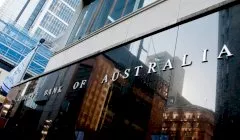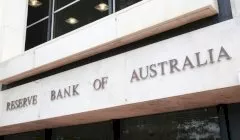Invest
Managed funds trumping cash for SMSF investors, research shows
SMSFs now have more than 25 per cent of their portfolio in managed funds, eclipsing the amount held in cash and term deposits for the first time, according to new research.
Managed funds trumping cash for SMSF investors, research shows
The second annual SMSF Insights report, commissioned by UBS and the Financial Services Council (FSC) and based on a survey of 601 SMSFs, revealed that the amount invested in managed funds has increased from 15 per cent in 2014 to 25 per cent in 2015.
The allocation of the average SMSF to cash and term deposits, on the other hand, has fallen from 35 per cent to 24 per cent.
UBS Asset Management head of Australia and New Zealand, Bryce Doherty, said the increasing use of managed funds by SMSFs dispels the belief that holders want to actively manage their superannuation.
“People, while they want to have flexibility and control, they don’t particularly want to be having to watch markets day in, day out,” Mr Doherty said.
"This affords SMSF investors professional management via product offerings and the luxury of control and flexibility regarding product choice as well as significant opportunity for fund managers to provide access across a broad range of diversified product offerings."
The report also revealed that exchange-traded funds (ETFs) are becoming more prominent in the SMSF space. Twenty per cent currently use this investment vehicle, while 10 per cent plan to use.
Those using ETFs indicated that the motivation is to gain access to offshore markets, something that Mr Doherty said is an "interesting development from a diversification point of view".
However, while ETF use is increasing, Mr Doherty said the growth in use by SMSFs does not correlate to the rapid growth being seen in the broader wealth management market.
“We thought that [ETF use] would have grown more significantly over the past 12 months than it had. There’s still plenty of education work to be done by ETF providers,” he said.
Mr Doherty added that while the concentration of investment in cash and domestic equities has been reduced, the SMSF sector is still lacking when it comes to diversification.
“This year, again, there still is definitely a bias towards Australian equities and still large cash holdings,” he said.
FSC chief executive Sally Loane said the study also found that stage of life plays a key role in determining SMSF holders' level of risk.
The report found that individuals aged between 55 and 64 had a more cautious and concentrated approach towards cash, managed funds and domestic equities.
For this age group, an average of 24 per cent of the total amount invested was in cash/deposits, while 26 per cent was in managed funds, 20 per cent in domestic equities and 4 per cent in overseas equities.
By contrast, “more than twice as many 18-44 year olds were leveraged for property or direct equities or they were considering diversifying into international investments”, Ms Loane said.

Cash
Cash usage in Australia continues to decline as digital payments rise
In the ever-evolving landscape of financial transactions, Australia is witnessing a significant shift away from cash, as revealed by Worldpay's latest Global Payments Report. According to the report, ...Read more

Cash
Navigating the equilibrium: Investor sentiment in the face of equity peaks and diminishing cash reserves
State Street's latest Risk Appetite Index indicates a nuanced shift in institutional investor sentiment during March, with the index reverting slightly towards neutrality. This subtle recalibration in ...Read more

Cash
RBA's November rate hike overshadows Melbourne Cup festivities
In a move that managed to draw attention away from the thrill of the Melbourne Cup, the Reserve Bank of Australia (RBA) has increased the cash rate by 25 basis points to 4.35 per cent, surprising ...Read more

Cash
RBA makes first cash rate call for 2022
The RBA has announced its first rate decision for 2022. Read more

Cash
Cash remains king for many Australians
Demand for banknotes remains high despite a decline in cash transactions. Read more

Cash
Interest rates to rise next year?
Commonwealth Bank has seconded Westpac’s predictions, forecasting that interest rates will rise well ahead of the RBA’s 2024 timeline. Read more

Cash
RBA makes latest official cash rate call
The Reserve Bank of Australia has made its May call on the official cash rate, with the economy said to be a long way from the conditions needed to precede a rate rise. Read more

Cash
RBA puts chatter of an earlier rate hike to rest
The Reserve Bank of Australia has put to rest chatter among investors that conditions for a higher cash rate could be met as early as next year, reaffirming its stance that the rate is “very likely” ...Read more

Cash
Cash usage in Australia continues to decline as digital payments rise
In the ever-evolving landscape of financial transactions, Australia is witnessing a significant shift away from cash, as revealed by Worldpay's latest Global Payments Report. According to the report, ...Read more

Cash
Navigating the equilibrium: Investor sentiment in the face of equity peaks and diminishing cash reserves
State Street's latest Risk Appetite Index indicates a nuanced shift in institutional investor sentiment during March, with the index reverting slightly towards neutrality. This subtle recalibration in ...Read more

Cash
RBA's November rate hike overshadows Melbourne Cup festivities
In a move that managed to draw attention away from the thrill of the Melbourne Cup, the Reserve Bank of Australia (RBA) has increased the cash rate by 25 basis points to 4.35 per cent, surprising ...Read more

Cash
RBA makes first cash rate call for 2022
The RBA has announced its first rate decision for 2022. Read more

Cash
Cash remains king for many Australians
Demand for banknotes remains high despite a decline in cash transactions. Read more

Cash
Interest rates to rise next year?
Commonwealth Bank has seconded Westpac’s predictions, forecasting that interest rates will rise well ahead of the RBA’s 2024 timeline. Read more

Cash
RBA makes latest official cash rate call
The Reserve Bank of Australia has made its May call on the official cash rate, with the economy said to be a long way from the conditions needed to precede a rate rise. Read more

Cash
RBA puts chatter of an earlier rate hike to rest
The Reserve Bank of Australia has put to rest chatter among investors that conditions for a higher cash rate could be met as early as next year, reaffirming its stance that the rate is “very likely” ...Read more








